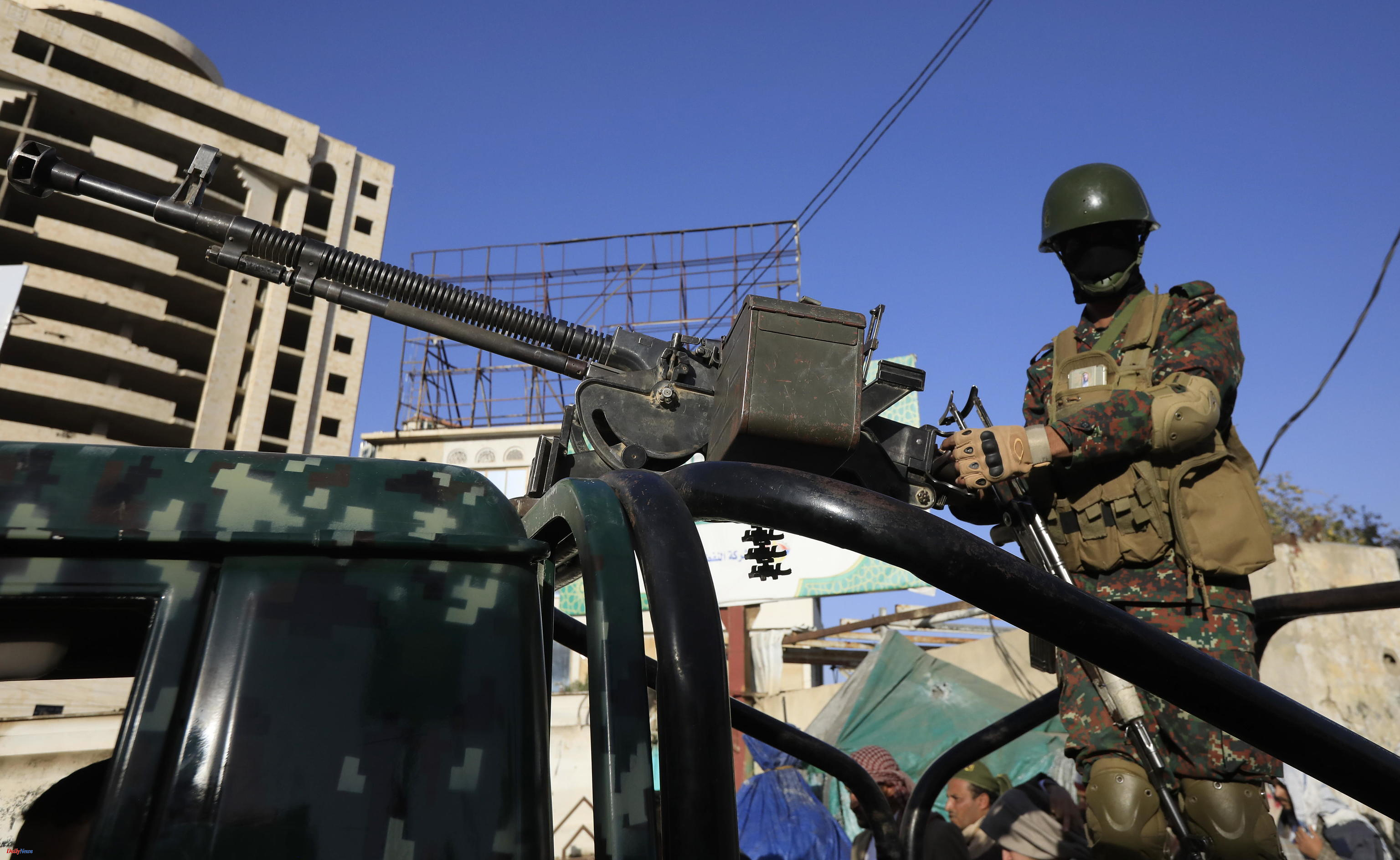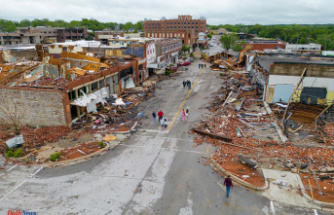Tension spread in Yemeni territory this Saturday, with a new round of US airstrikes that hit several towns in the west of the country, including the Taiz airport, the third most populated city. Washington seeks to challenge the military capacity of the Houthis to stop their attacks in the Red Sea, which have put this important maritime trade route in check in response to the Israeli offensive in Gaza.
According to the US command that operates in the Middle East, Centcom, the attack is "a follow-up action" and comes a day after the joint bombing of Washington and London on Thursday night. US forces reportedly launched more than 70 projectiles to hit military targets, radars and warehouses in the coastal area of the west of the country, under Houthi control.
"(The attack did not cause) injuries or material or human losses," Nasreddin Amer, Houthi undersecretary of information, told Al Jazeera broadcaster. Amer promised a "strong and effective response" to the bombings, which killed five fighters on Thursday. The US strikes have spread fear among Yemenis, who are recovering from a fragile ceasefire after a brutal decade of war between the Houthis and forces backed by Saudi Arabia. The conflict caused more than 337,000 deaths and famine throughout the country. Tens of thousands of Yemenis took to the streets on Friday to protest the US and British bombings, while reaffirming their support for the Palestinians and against Israel.
US President Joe Biden warned Friday that he is willing to continue bombing Yemen if the Houthis "continue this outrageous behavior." Biden called the attacks on Israeli-linked commercial ships in the Red Sea "terrorist," although Washington removed the militants from the official list of terrorist organizations in 2021. White House spokesman John Kirby said the The attacks aim to undermine the organization's military capacity and that Washington has no interest in opening a war front with Yemen.
The attacks have drawn condemnation from Middle Eastern governments, which believe they only add tension to fears of regional escalation. On Friday afternoon, hundreds of Iranians protested against the bombings in front of the British Embassy in Tehran, where the attacks are perceived as a provocation against Iran for its support of the Houthis. "Yemen's measures to support the women and children of Gaza and to confront the genocide of the Israeli regime are admirable," declared the Iranian Foreign Minister, Hossein Amirabdollahian, on his social networks.
The Yemeni militia has fired at least one missile in response to the attacks, Centcom COO Douglas Sims announced. "Their rhetoric has been quite strong and lofty. We hope they try some kind of retaliation. I hope they don't retaliate but we are prepared in case they do," he warned.
In the last two months, the Houthis have hijacked one commercial ship and attacked 27 others, causing large firms to opt for longer and more expensive maritime routes, which could ultimately lead to increased prices for some products. Since the start of the war in Gaza, the Yemeni militia has also launched missiles that reached Israeli territory, without causing fatalities. After the flow of maritime traffic in the Red Sea fell by 44% and amid fears that it could hit oil prices.
The United States and allied countries launched an initiative to patrol these waters, in an attempt to repel Houthi attacks. While some countries such as Australia or Canada have provided logistical support for the attacks on Yemeni soil, others, such as Spain, France or Italy, have refrained from supporting the bombings for fear of a regional escalation of the conflict. In recent weeks, the United States also carried out airstrikes in Syria and Iraq against pro-Iran militias, which had themselves attacked US forces stationed in the region.
On Saturday morning there were bombings in Iraq, this time carried out by Turkey, which attacked targets of Kurdish militias that it considers terrorist groups. The action took place on the sidelines of the Gaza war and responds to an attack by Kurdish militias against a Turkish military base in Iraq, which caused the death of nine Turkish soldiers. In recent months, Ankara has intensified air strikes in Syria and Iraq against Kurdish militias, which it considers a threat to its security due to their alleged links with the guerrilla operating in Turkey, the PKK.












